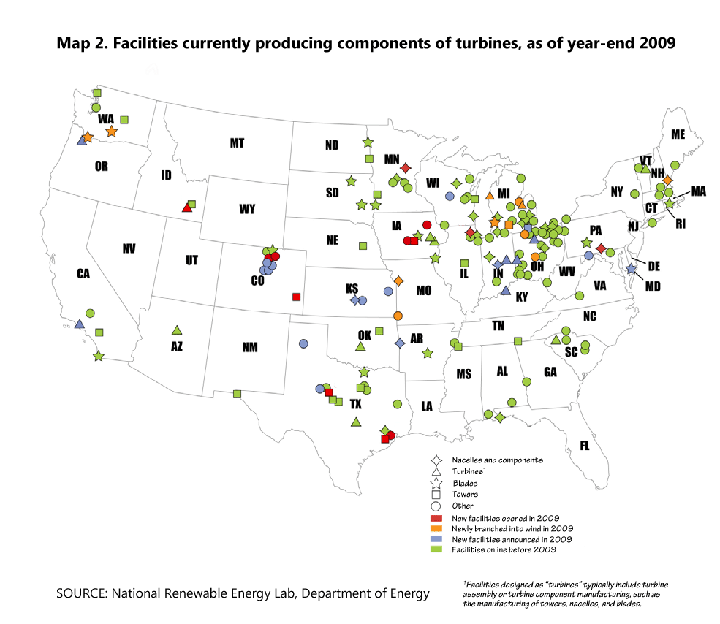Top 10 Degrees for Green Industries
Post on: 17 Октябрь, 2015 No Comment

We have seen the future, and it is green. We are all familiar with global warming and the alternative energy industries dipping their toes into a marketplace dominated by fossil fuels. But the turn toward environmental causes has also created a number of new industries offering more than just solutions to the global warming crisis. The growth in green industries represents many job opportunities that have appeared as new ideas about creating and sustaining our environments become viable alternatives to the way we used to think about architecture and manufacturing. Many colleges and universities are catching up with this increasing demand for people skilled in conservation, sustainability, and environmental sciences. The following are ten degrees that are a good way to start climbing the ladder in this promising market sector:
1. Biology
Biology degrees show up on almost every list of best degrees for emerging industries for a reason. A degree in this field simply has that many applications, and most emerging industries have a vested interest in people that understand organic sciences. The current greening of our marketplace is in part the result of a better scientific understanding of ourselves, nature, and the way we are affected by our environment. There are few green industries that did not start first in a laboratory tinkering with the basic elements of organic life, and this connection between environmental science and biology should continue to be a driving force in this job market.
The Degree Program:
The standard Biology degree is a good place to start, and this initial experience will offer you the opportunity to explore the right specialized graduate school options.
2. Business Management
When we talk about green industries, we talk about ideas and products that are becoming valuable commodities in the marketplace. These ideas and services are only valuable when people with experience in business can handle the financial aspect of making them commercially available. There is a lot of money to be had in the environment business, with a pile of investment capital on the table for people that know how to leverage this growing market.
The Degree Program:
Go get that Business degree. There are few, if any, replacements for the standard B-school curriculum.
3. Conservation
There is a very wide array of options available to the Conservation Science grad. Fish and Wildlife Management is a traditional career path, which involves tracking and managing wildlife in local and natural habitats. But given the growing awareness of environmental issues, the Conservation degree now leads to careers in waste management, pollution control, and a variety of policy or compliance related roles that are sure to be marked by job security.
The Degree Program:
If you want to take a Conservation degree, spend some time looking at schools with the best programs. These will grant you access to the widest range of career options post-graduation. There are a lot of career options available to those not interested in pursuing graduate school in this field.
4. Environmental Chemistry
Images of oil spills, flooded nuclear facilities, and natural disasters have filled the news for the last few years. Environmental Chemists are our first line of defense in the recovery of the ecosystems from these tragedies. In a more proactive sense, chemists are also involved with creating ways to handle pollution and the fallout of manufacturing industries. Much of what we see offered as alternatives to fossil fuels begin in the environmental chemistry lab. This career is to green industry as biotechnology is to the healthcare industry – it is hard to see it becoming anything other than a core future profession.
The Degree Program:
Environmental Chemistry can begin in a general Chemistry program. You will need to be prepared to buckle down for some grad school.
5. Environmental Engineering
Environmental Engineers are a key part of the movement in architecture toward green building and facilities that require alternative resources to operate. From insulation to HVAC to innovating building materials, these engineers are changing the way our living spaces work.
The Degree Program:
Environmental Engineering begins at the undergraduate level. Grad school in this area only increases your chances of landing that first job.
6. Environmental Law
The first thing we all think of here is Erin Brokovich. This brand of environmental law is an important part of our justice system, but the greening of our society often occurs first at the level of law and policy. It may not be the most glamorous work, but experts in policy development are often the driving forces behind emerging industry.
The Degree Program:
Welcome to Law School. There are some Law Schools that offer specialized tracks in Environmental Law, and these tend to feed students into the right firms after graduation.
7. Renewable Energy Management
As soon as advances in renewable energy technology make their way to the marketplace, someone needs to know how to make them work. A Renewable Energy Manager monitors the technology that makes things like solar, wind, or hydraulic power a viable alternative to the environmentally costly fuel sources. Many industries look to Renewable Energy Managers to make these work in their context.

The Degree Program:
There are currently a few undergraduate programs in Renewable Energy Management that are similar to Environmental Engineering programs. Either degree program is a good place to start.
8. Sustainability
A few industries have lead the way in creating positions for Sustainability Officers. We are finding innovative ways to eliminate waste, handle recyclable materials, and incorporate environmental friendly practices into our work routines. A Sustainability Officer has the unique ability to blend these advances in environmental science and engineering with operations management. There is a significant opportunity for consulting in this field as well.
The Degree Program:
Degrees in Sustainability and Sustainability Management are now available at the undergraduate and graduate levels.
9. Urban Planning
Urban Planning is not simply a form of civil engineering. This growing industry uses advances in our understanding of urban living spaces and ecosystems to create better standards of living in urban environments. This career is an intersection of many of the jobs on this list, and will appeal to people interested in very practical environmental issues. In addition, Urban Planning is a good future career option for people that are looking for a more creative line of work, but are not willing to gamble on a job in the declining creative industry.
The Degree Program:
This career was once accessible through degrees in Architecture, Civil Engineering, or Environmental Engineering. The industry has grown to a point that degrees in Urban Planning are now available at a few very respected universities.
10. Waste Management
Keep reading, I am not talking about becoming a refuse collector here. Waste Management is a vital industry dealing with everything from hazardous waste to water pollution. It requires people well trained in chemistry, civil engineering, and operations management – which makes people that have this specialized education very attractive to most manufacturing industries.
The Degree Program
You can obtain a Waste Management degree at many institutions, which is now a standard entry-level requirement for the field. This career is also accessible through Civil Engineering programs that focus on water, solid, and hazardous waste management.














